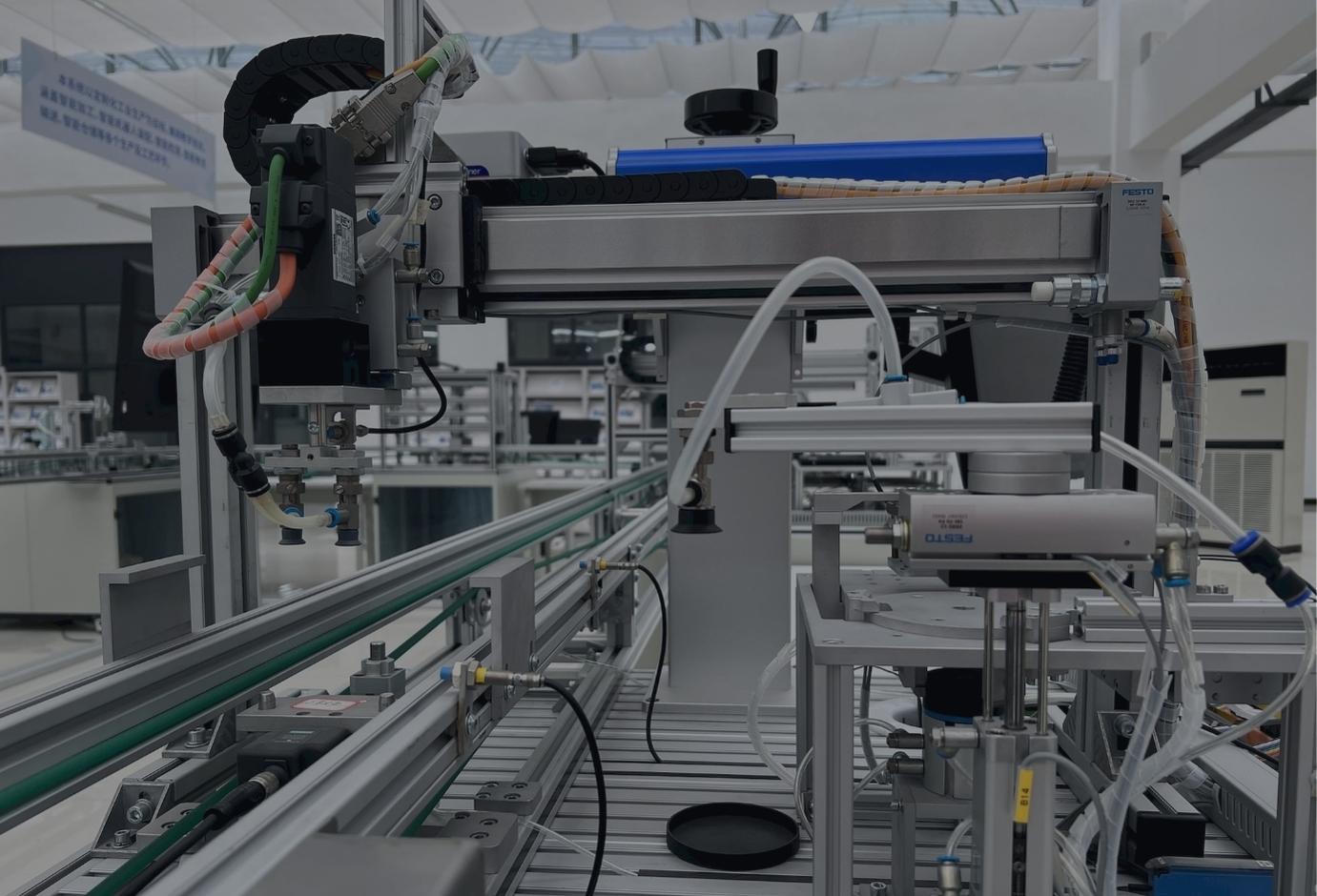Revolutionizing Industrial Automation

The world is rapidly moving towards a more connected future, with the Internet of Things (IoT) playing a major role in this transformation. As more and more devices become connected, the opportunities for innovation and growth are immense. Venture and new business building, the process of creating new business models from scratch, is an area where IoT is already having a significant impact.
The Growing Influence of IoT in Venture Building
In today's rapidly evolving digital landscape, the Internet of Things (IoT) is emerging as a powerful catalyst for transformation, reshaping the way businesses approach venture building and new business creation. As the world becomes increasingly interconnected, the potential for innovation and growth is expanding exponentially. The IoT, with its network of interconnected devices and sensors, is at the forefront of this paradigm shift, revolutionizing industries and opening up new avenues for entrepreneurial endeavors.
Venture building is experiencing a profound influence from the IoT. This transformative technology has the power to disrupt traditional industries and unlock untapped potential in various sectors. From smart homes and wearables to industrial automation and supply chain management, the IoT is revolutionizing the way companies operate, create value, and connect with their customers.
The Impact of IoT on Venture Building in Industrial Automation
One area where the Internet of Things (IoT) shines with immense potential is industrial automation. The marriage of IoT and industrial automation has the power to revolutionize the manufacturing landscape, unlocking new levels of efficiency, productivity, and cost savings. By integrating IoT technology into industrial processes, businesses can create a network of interconnected devices, sensors, and data analytics systems. This interconnected ecosystem enables real-time monitoring, intelligent decision-making, and predictive maintenance, ultimately transforming the way industrial operations are conducted. However, alongside these opportunities, IoT ventures also bring unique challenges that necessitate careful consideration and strategic planning.
Opportunities of IoT on Venture Building in Industrial Automation
In manufacturing plants, IoT sensors play a crucial role in collecting real-time data on machine performance, temperature, and environmental conditions. This wealth of data can be analyzed to identify patterns and anomalies, enabling proactive maintenance measures to prevent costly breakdowns. By implementing predictive maintenance strategies, ventures can schedule maintenance tasks based on actual machine conditions, maximizing uptime and minimizing unexpected downtime. This not only improves overall equipment reliability but also eliminates the need for reactive maintenance, resulting in significant cost savings.
Moreover, IoT-enabled supply chain management systems provide real-time visibility into crucial aspects such as inventory levels, shipment tracking, and demand forecasting. By leveraging this data, businesses can make data-driven decisions and optimize their operations. Real-time inventory tracking ensures efficient inventory management, avoiding stockouts or excess inventory. With accurate demand forecasting, ventures can adjust production schedules, allocate resources effectively, and respond swiftly to changing market demands. This level of visibility and agility gives businesses a competitive edge, allowing them to meet customer expectations promptly and optimize supply chain performance.
Another opportunity of IoT in industrial automation is the ability to remotely monitor and control industrial equipment. IoT devices enable businesses to monitor performance metrics, receive alerts in case of deviations or anomalies, and remotely control machinery from anywhere. This capability allows ventures to operate and manage assets efficiently, even across multiple locations. Remote monitoring not only saves time and resources but also enables swift response to critical situations. In addition, centralized control and automation contribute to improved operational efficiency, reduced human error, and standardized processes.
Challenges of IoT Ventures in Industrial Automation
IoT ventures in industrial automation face specific challenges that demand careful attention and strategic solutions. One of the critical challenges is ensuring robust security measures to protect against cyber threats. As the number of connected devices increases, so does the attack surface for potential breaches and data compromise. Implementing comprehensive security measures across the entire IoT ecosystem is paramount. This includes device-level security, secure data transmission, and secure cloud infrastructure. By establishing a strong security framework encompassing authentication, encryption, and access controls, ventures can mitigate risks and safeguard their industrial IoT deployments.
The complexity of IoT systems presents another challenge in industrial automation ventures. Navigating technical considerations, such as device compatibility, interoperability, and standardization, requires specialized knowledge and expertise. With diverse devices, protocols, and technologies involved, ventures must carefully plan, integrate, and test their IoT systems. Overcoming these complexities ensures seamless communication and interoperability among various components, allowing for the smooth operation of interconnected devices, sensors, and applications.
Managing and analyzing the vast volumes of data generated by industrial IoT ventures is, while being a great opportunity, also a significant challenge. These ventures produce an abundance of data from connected devices, sensors, and machinery. Effectively handling this data is crucial for extracting meaningful insights, optimizing operations, and making informed decisions. Ventures must establish robust data management systems that can efficiently handle data storage, processing, and analysis. Additionally, compliance with privacy regulations and data security standards is essential to protect sensitive information and maintain legal and ethical practices.
Scalability and reliability are crucial considerations for industrial automation IoT ventures, particularly in large-scale operations. Ventures must ensure that their IoT solutions can handle the increasing volume of devices, data, and transactions without compromising performance. Scalability considerations involve factors such as network bandwidth, data processing capabilities, and system architecture. Additionally, the reliability of IoT systems is vital to avoid costly downtime and maintain continuous operations. Ventures need to design robust failover mechanisms, implement redundancy, and establish effective monitoring and maintenance processes to ensure the reliability of their industrial IoT solutions.
Overcoming these challenges is vital for ventures to maximize the benefits of industrial automation IoT deployments. By addressing security concerns, navigating complexity, implementing robust data management systems and ensuring scalability and reliability, ventures can unlock the full potential of IoT technologies in industrial automation. By doing so, they can achieve enhanced operational efficiency, cost reduction, improved decision-making, and a competitive edge in the market.
Maximizing the Potential and Overcoming Challenges through Collaboration
By partnering with industry-leading experts, ventures can leverage their knowledge and experience to overcome the challenges and unlock the full potential of industrial automation IoT deployments. Collaborating with cybersecurity experts ensures the implementation of robust security measures, safeguarding against potential cyber threats. These experts conduct risk assessments, develop comprehensive strategies, and implement encryption and authentication protocols to protect IoT ecosystems.
Fostering partnerships for interoperability allows ventures to navigate the complexities of IoT systems more effectively. By collaborating with IoT platform providers, device manufacturers, and industry consortia, ventures gain access to standardized protocols and integration tools, simplifying the integration process. This collaboration ensures seamless communication and interoperability among various devices and systems, facilitating the smooth operation of interconnected components.
Implementing robust data management systems is crucial for handling the vast volumes of data generated by industrial IoT ventures. Ventures need scalable and efficient solutions for data storage, processing, and analysis. Cloud-based platforms, big data analytics tools, and scalable databases provide the infrastructure required to collect, store, and analyze data effectively. By complying with privacy regulations and implementing proper data governance frameworks, ventures can protect sensitive information and ensure data integrity and security.
Companies like Bitrock Digital Partners and Happiest Minds are at the forefront of developing innovative strategies and tools to address these challenges. Their expertise in security frameworks, data analytics, and integration solutions positions them as valuable partners in maximizing the potential of industrial automation IoT ventures. By collaborating with these companies, ventures can access their specialized knowledge and leverage their cutting-edge technologies to create successful business models.
Summarizing this, the influence of IoT on venture building in industrial automation is profound, offering opportunities to optimize processes, improve efficiency, and enable predictive maintenance. However, specific challenges must be addressed for successful implementation. Robust security measures, collaboration with cybersecurity experts, and partnerships for interoperability are key in overcoming security concerns and navigating the complexity of IoT systems. Implementing robust data management systems, along with expert guidance, ensures effective handling of data and compliance with regulations. Overcoming compatibility issues and ensuring scalability and reliability are also crucial for maximizing the benefits of IoT ventures.
Looking ahead, the future of IoT in venture building for industrial automation appears promising. Advancements in edge computing, artificial intelligence, and 5G connectivity will further enhance the capabilities of IoT systems, enabling more sophisticated automation and real-time decision-making. As the technology continues to mature and evolve, ventures that embrace IoT and collaborate with experts will be well-positioned to drive innovation, gain a competitive edge, and unlock new opportunities in the ever-expanding realm of industrial automation.


